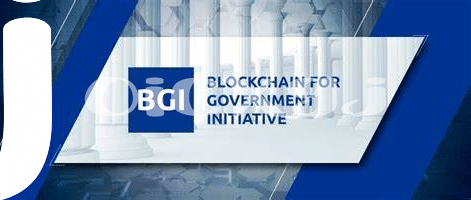Introduction to Blockchain Technology 🔍

Blockchain technology is revolutionizing various industries worldwide due to its decentralized and secure nature. It functions as a digital ledger that records transactions across a distributed network, ensuring transparency and immutability. This innovative technology eliminates the need for intermediaries, enabling direct peer-to-peer transactions. Its decentralized structure enhances security by reducing the risk of data manipulation and unauthorized access. Blockchain’s potential to streamline processes and enhance trust has garnered significant attention across sectors, including finance, supply chain, healthcare, and government services. As we delve deeper into exploring the successful implementation of blockchain in government services, it is vital to grasp the fundamental principles and benefits that underpin this transformative technology.
Challenges Faced by Palestinian Government 💡
The Palestinian government, like many others, grapples with a series of challenges that impede the efficiency and transparency of its operations. One prominent issue is the lack of a centralized system for data management, leading to difficulties in maintaining accurate records and ensuring secure transactions. Additionally, the government faces hurdles in fostering trust among citizens due to historical concerns about corruption and inefficiency. Moreover, the complex political landscape of the region further complicates decision-making processes and implementation of new technologies. Overcoming these obstacles requires innovative solutions that can streamline operations, enhance accountability, and rebuild trust within the community.
Implementation Strategy and Framework 🛠️

The implementation strategy and framework for integrating blockchain technology into Palestinian government services involved meticulous planning and collaboration between government agencies and tech experts. By clearly defining the objectives, establishing secure data sharing protocols, and conducting thorough training sessions for staff members, the transition to blockchain was smooth and efficient. Emphasizing transparency and accountability throughout the process ensured trust and buy-in from stakeholders. Additionally, creating a user-friendly interface and providing continuous support for users helped streamline operations and enhance overall service delivery. The framework also included regular evaluations and updates to adapt to changing needs and technologies, ensuring the long-term success of the blockchain implementation.
Impact of Blockchain on Government Services 💼

The integration of blockchain technology within government services has brought about a significant transformation in the efficiency and transparency of operations. By leveraging the decentralized and immutable nature of blockchain, the Palestinian government has streamlined processes, reduced bureaucratic delays, and enhanced data security. Citizens now have access to real-time information, securely stored on the blockchain, ensuring a more accountable and responsive governance system. This innovative approach has not only modernized service delivery but also instilled trust and confidence in the government’s ability to adapt to evolving technological landscapes.
Embracing blockchain has not only revolutionized government services but has also paved the way for a more inclusive and digitally empowered society. With increased trust in data integrity and enhanced security protocols, citizens and businesses are more willing to engage with governmental processes. Moreover, this adoption of blockchain sets a precedent for other nations, encouraging the exploration of similar digital transformation initiatives. As we witness the positive impact firsthand, the potential for blockchain to revolutionize public services across various sectors becomes increasingly evident. This momentum toward a more efficient and transparent governance model mirrors the global shift towards embracing digital innovations in the public sector.Government initiatives on bitcoin and blockchain in Bahamas
Case Study Analysis: Success Factors 📊
Blockchain’s successful implementation in Palestinian government services was attributed to several key success factors. These include robust stakeholder engagement, dedicated team commitment, thorough training programs, and continuous monitoring and evaluation. By fostering a culture of collaboration and innovation, addressing potential challenges proactively, and staying aligned with the government’s overall vision, the project was able to overcome obstacles and deliver tangible benefits to both citizens and government agencies. The case study analysis highlighted these success factors as instrumental in achieving positive outcomes and paving the way for further advancements in blockchain technology within government services.
Future Potential and Expansion Opportunities 🚀

In exploring potential future possibilities for blockchain technology within Palestinian government services, there are exciting opportunities for expansion and growth. As the implementation of blockchain continues to prove successful, the potential for its integration into additional sectors and services within the government is significant. Embracing this innovative technology could lead to increased efficiency, transparency, and trust in government operations. Furthermore, as blockchain becomes more widely adopted, there is an opportunity for Palestinian government services to enhance their overall functionality and effectiveness.
To learn more about government initiatives on bitcoin and blockchain in Panama, visit government initiatives on bitcoin and blockchain in Oman.
